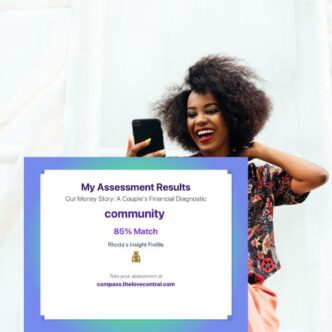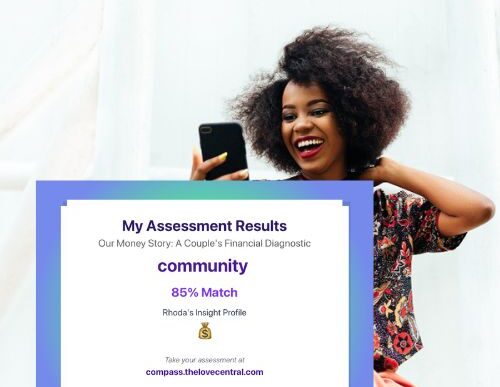Emotional intelligence (EI) is often hailed as the secret ingredient behind successful leaders, healthy relationships, and overall life satisfaction. It’s the skill that allows people to read a room effortlessly, to stay composed under pressure, to empathize deeply, and to communicate with authenticity.
In workplaces, it’s associated with higher performance research suggests that 90% of top performers possess high emotional intelligence, and that it accounts for up to 58% of job success. In relationships, it’s linked to greater stability and satisfaction.
But for those who live with heightened emotional awareness, feel tension before anyone speaks, sense sadness masked by smiles, and constantly adjust themselves to maintain harmony, emotional intelligence can be both a blessing and a quiet burden.
Because when you see and feel more than others do, you also carry more. You notice the subtle ways people withdraw, the unspoken pain behind their words, and the dissonance between what’s said and what’s felt. This deeper perception can lead to profound empathy, but also to isolation.
Studies increasingly reveal this paradox. While emotional intelligence generally correlates with lower loneliness, it also exposes individuals to emotional overload and empathic fatigue when they lack reciprocation or boundaries.
A 2022 study published in Frontiers in Psychology found that emotionally intelligent people often experience higher internal stress due to over-identification with others’ emotions, leading to emotional exhaustion over time
The Double-Edged Gift of Emotionally Intelligent Awareness
People high in emotional intelligence are able to pick up on subtleties: a change in tone, a hesitant glance, the energy behind someone’s words. This gives them an extraordinary capacity for empathy and connection. It also means they see more, all the hidden, unspoken emotional undercurrents.
While this can be a strength, it can also become a burden. For instance: research shows that loneliness isn’t just a personal malaise, it’s a global health concern.
The World Health Organization reports that nearly one in six people globally say they feel lonely, and that loneliness & social isolation were associated with more than 871,000 deaths annually between 2014-2019. In the U.S., a poll found 30% of adults said they experienced feelings of loneliness at least once a week, and 10% said they felt lonely every day.
So awareness alone doesn’t immunize a person from loneliness. In fact, it may shape a unique experience of it.

Why Emotionally Intelligent People Can Feel Lonely — Even When They Aren’t Alone
1. Being the listener rather than the one listened to
Individuals high in EI often become safe harbours for others. They’re skilled at reading and responding to emotional signals, which means they are sought after when others need support. Over time this can lead to an unbalanced dynamic: giving more emotional labour than receiving.
2. Masking their own vulnerability
One of the hallmarks of emotional intelligence is self-regulation. But that can slip into emotional invisibility: they might appear composed and unruffled, which leads others to assume they don’t need support. Meanwhile, inside, their emotional landscape may be rich, layered and lonely.
3. Seeing relational cracks others don’t
Because they pick up on subtle emotional cues, emotionally intelligent people may notice when a connection is shallow, when someone is only half present, or when empathy is missing. That kind of relational insight can lead to a profound sense of “I see this but no one else is acknowledging it.”
4. Emotional labour without reciprocity leads to fatigue
Constantly attuning to others’ feelings takes energy. Without emotional replenishment (through relationships that offer mutual depth), this can lead to exhaustion and withdrawal. Evidence suggests that higher emotional intelligence is associated with lower loneliness and higher life satisfaction, but only when support and reciprocity are present.
5. Awareness of isolation in a crowd
Interestingly, loneliness isn’t always about isolation in a physical-social sense; it can be about emotional isolation, being surrounded by people yet not feeling truly seen. Studies using neural imaging show that lonely individuals process experiences in more idiosyncratic ways, suggesting that even when socially connected, their internal world may feel divergent from those around them.
Read more related content: How Immigrants Can Build a Strong Support System After Moving Abroad
Nurturing Connection While Honouring Awareness
If you recognise yourself in this description of emotionally intelligent loneliness, here are ways to protect your emotional wellbeing while staying true to your awareness.
- Seek emotional reciprocity. Make space for relationships where you are asked how you feel, not just the listener.
- Set boundaries around emotional labour. Recognise that just because you can absorb someone’s feelings doesn’t mean you must always.
- Share your vulnerability. Let people see you, not just your emotional competence. It invites connection to meet you where you are.
- Choose your solitude intentionally. Time alone is especially important for those who’re emotionally aware, but ensure it’s restorative rather than isolating.
- Reflect on your emotional health. Your self-awareness is a strength, use it to monitor for signs like exhaustion, withdrawal or recurring loneliness.
- Engage with like-minded peers or supportive communities. Finding groups where emotional depth is understood helps mitigate the sense of being “the only one” with awareness.
Emotional intelligence is a profound asset. It helps you connect deeply, understand widely and live authentically but it also allows you to feel the gap between connection and understanding the places in relationships where others might be unaware, inattentive, or absent.
The loneliness that can come with this awareness is not a failure. It is a signal: a call to realign your emotional depth with people who see it, support it, and mirror it. When you honour your awareness and seek a matching emotional world, you move from hidden loneliness toward meaningful belonging.












